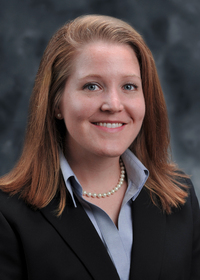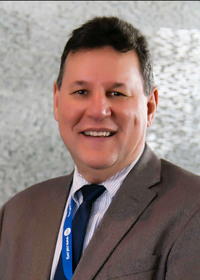Information Possibly Outdated
The information presented on this page was originally released on October 14, 2002. It may not be outdated, but please search our site for more current information. If you plan to quote or reference this information in a publication, please check with the Extension specialist or author before proceeding.
MSU lands $1M grant for food safety research
MISSISSIPPI STATE -- A grant exceeding $1 million will enable researchers to study the extent food-safety pathogens exist in the poultry production process to determine the best point to concentrate treatment efforts.
"We can measure salmonella and campylobacter in feed, chicks, adults, litter and the air - all over the continuum - but no one knows how they relate to the final outcome," said Dr. Robert Wills, associate professor with Mississippi State University's College of Veterinary Medicine. "We want to find the most efficient time to intervene in the production process to reduce salmonella and campylobacter in the final product."
Wills and Dr. Hart Bailey, assistant professor at the CVM, will spearhead research funded for three-years by the U.S. Department of Agriculture. In addition to scientists and personnel from MSU's College of Veterinary Medicine, the multidisciplinary research team will include people from MSU's Extension Service, the Agricultural Research Service and two different poultry companies, Sanderson Farms and Peco Farms, operating in nine processing plants.
"We will examine risk factors in management decisions, in the environment and in the production process," Wills said. "Management decisions include issues such as stocking density, how many flocks are on the litter before it is changed and how much time passes in between flocks. Environmental issues include things like the type of ventilation or the type of water dispensers."
Along the production chain, Wills said researchers plan to divide the poultry production and processing continuum into four segments: breeder-hatchery, grow-out, transportation from the farm to the plant and processing. They will evaluate bacterial levels at the hatchery, the last week before leaving the production house, when the birds arrive at the processing plant, prior to the chill tank and exiting the chill tank.
"If a primary point of contamination can be identified, researchers can focus on that area to reduce the risk of salmonella," Wills said. "We can make a lot of common sense assumptions, but until we test them, any decisions we make can be wasteful and nonproductive."
Bailey said the need for this sort of research increased when the Food Safety and Inspection Service implemented the Hazard Analysis Critical Control Point, or HACCP, regulations in 1998. Campylobacter is not regulated yet and testing is difficult, but it is typically more common on broiler carcasses than salmonella.
"Our long range goals are to assist the meat and poultry industry in meeting the requirements of current and future food safety regulations and to improve the safety of meat and poultry products," Bailey said. "A lot of Mississippians depend on the poultry industry for their livelihood, and an even larger percentage consumes poultry. Therefore, we have a vested interest in producing the best product possible."
Poultry is Mississippi's leading agricultural commodity. The statewide farm value of broilers and eggs in 2001 was almost $1.17 billion.
Bailey credits the poultry industry's willingness to improve their methods as a catalyst for this type of food safety research.
"Salmonella naturally occurs on chickens and other animals and probably always will. We are working with the industry to reduce the levels as low as possible, thus making it easier to produce an even safer product. But we encourage consumers to remember that using proper cooking and food handling techniques are still the best ways to prevent food safety problems," Bailey said.
In addition to Bailey and Wills, the research team members will include Drs. Danny Magee and Sue Ann Hubbard from MSU's College of Veterinary Medicine, Dr. Anna Hood from MSU's Extension Service, Dr. Allen Byrd from the Agricultural Research Service, and representatives from Sanderson Farms based in Laurel and Peco Farms based in Gordo, Ala.
Contact: Drs. Hart Bailey or Robert Wills, (662) 325-3432



